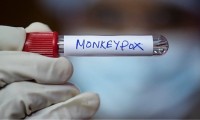-
Chiesi, Protalix’s PRX-102 secure FDA nod to treat Fabry disease
- Source: drugdu
- 356
- May 15, 2023
-
Ariceum and UCB link up to take on immune-related diseases
- Source: drugdu
- 352
- May 15, 2023
-
NHS misses targets in England to tackle care backlogs
- Source: drugdu
- 369
- May 15, 2023
-
WHO declares global emergency over
- Source: drugdu
- 350
- May 15, 2023
-
ImmunityBio gets manufacturing-related FDA snub on cancer drug, shares crash
- Source: https://seekingalpha.com/news/3969942-immunitybio-stock-crashes-after-fda-snub-cancer-therapy
- 368
- May 14, 2023
-
Cytiva and Pall Life Sciences complete integration
- Source: https://www.news-medical.net/news/20230512/Cytiva-and-Pall-Life-Sciences-complete-integration-to-create-a-global-innovation-and-solutions-leader-in-biotechnology.aspx
- 456
- May 14, 2023
-
Despite rough quarter, Bayer’s duo of Nubeqa and Kerendia continue to excel
- Source: https://www.fiercepharma.com/pharma/rough-quarter-bayers-duo-nubeqa-kerendia-continue-excel
- 467
- May 14, 2023
-
Sobi to acquire CTI BioPharma for approximately $1.7bn
- Source: https://www.pmlive.com/pharma_news/sobi_to_acquire_cti_biopharma_for_approximately_$1.7bn_1491454
- 368
- May 14, 2023
-
Amylyx’s ALS drug again surpasses Wall Street expectations
- Source: https://www.biopharmadive.com/news/amylyx-als-relyvrio-sales-first-quarter/650139/
- 255
- May 14, 2023
-
A machine-learning approach for the early diagnosis of Parkinson’s disease
- Source: https://www.news-medical.net/news/20230511/A-machine-learning-approach-for-the-early-diagnosis-of-Parkinsons-disease.aspx
- 366
- May 14, 2023
your submission has already been received.
OK
Subscribe
Please enter a valid Email address!
Submit
The most relevant industry news & insight will be sent to you every two weeks.

















